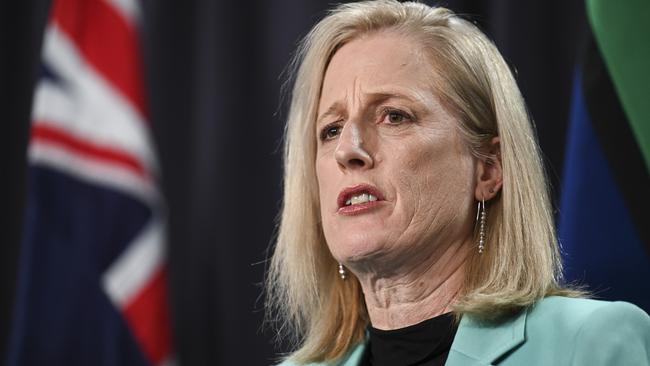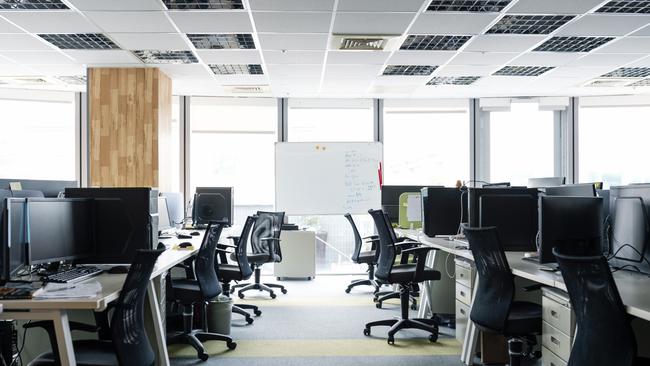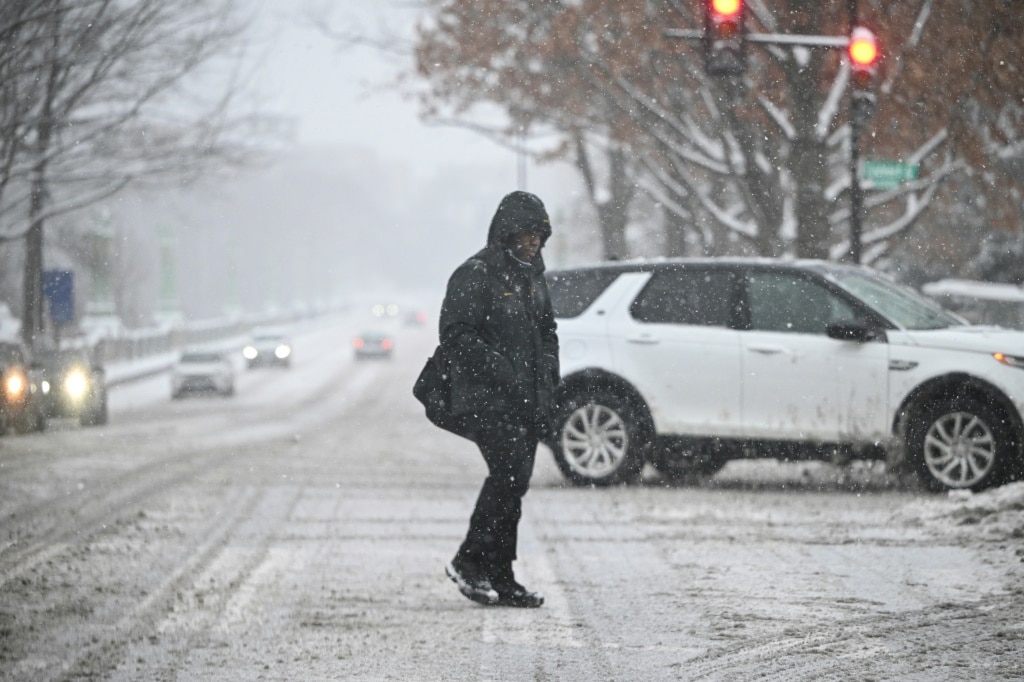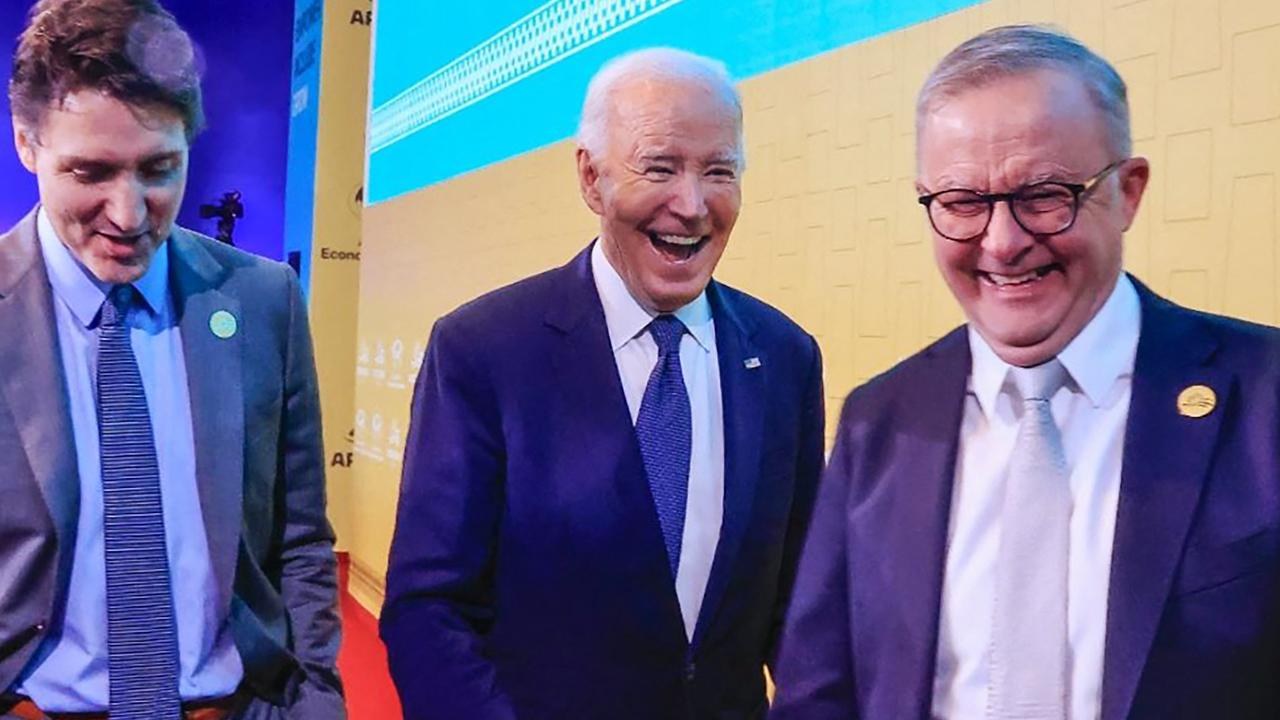Women’s savings gaps even larger than pay gap, new research finds
It’s well known that women earn less than men in Australia, but new research has shown there is also a disturbing gulf between the amount of money saved by each gender.

Breaking News
Don't miss out on the headlines from Breaking News. Followed categories will be added to My News.
Australian women have $14,000 less in their savings account – or 27 per cent – than the average Australian male.
A survey commissioned by Money.com.au has found more women struggle to save money after paying their bills than men, and more women are “very stressed” about Reserve Bank rate decisions.
Australia’s gender pay gap currently sits at 21.7 per cent, comprehensive data from the government Workplace Gender Equality Agency shows.
It is illegal to pay a woman less for the same work as a man – this pay gap figure is the difference between the average or median pay of women and men across organisations, industries and the workforce as a whole.
But the Money.com research shows the gender savings gap is larger than the pay gulf.
“The gender savings gap will make it harder for many women to build long-term financial security,” Money.com financial commentator Sean Callery said.
“With less in the bank on average, women face more obstacles when it comes to qualifying for a home loan, investing and preparing for retirement.”

On average, women have $39,458 in savings, the research finds. That is $14,486 less than men, or a 27 per cent gap. The figures include the healthy nest eggs many Baby Boomers are sitting on.
“Women are feeling the pinch more than men, often struggling to save after covering essential expenses,” Mr Callery said.
“Despite this, many are still prioritising contributions to a rainy-day fund and working to future-proof their finances.”
The research found 21 per cent of women are “very stressed” about RBA decisions, compared to 17 per cent of men.
“For women juggling the responsibility of managing household finances, rate changes can make them feel more vulnerable, especially with mortgage repayments now higher than they were a few years ago,” Mr Callery said.
Forty per cent of women struggle to save money after paying bills, compared to 33 per cent of men. Before payday, 29 per cent of women have no money left before payday, versus 24 per cent of men.
The survey polled 1000 Australians in October, across a nationally representative sample of gender, age and location.
Going on a different metric to the Workplace Gender Equality Agency, Finance Minister Katy Gallagher announced in August the national gender pay gap had fallen to a record low 11.5 per cent.
“This progress isn’t just good for women – it’s also good for men, good for children, good for the economy and good for the community,” she said.
“As well as lowest gender pay gap on record, we now also have reached a record high for women’s workforce participation at 63.2 per cent,” the Finance and Women’s Minister said at the time.

Senator Gallagher pointed to the government’s 15 per cent pay rise for early childhood educators and aged care workers, minimum wage rises and banning pay secrecy clauses as drivers in closing the gap.
The research finds Baby Boomers, naturally, have more wealth than other generations.
“It’s no surprise that Baby Boomers have the most savings - they’ve had decades to
accumulate wealth, and nearly half (46 per cent) of older Australians have already paid off their mortgage,” Mr Callery said.
“Younger generations, on the other hand, are navigating high mortgage rates and rents in a tough economy where wages haven’t kept up with inflation. It’s a double whammy for them.”
Baby Boomers have on average $61,232 in savings, followed by Millennials with $46,676.
Gen X has about $44,500 and Gen Z has about $40,000.
People who have paid off their mortgage have on average about $72,500 in savings, while renters on average have $32,200 in savings, the survey finds.
Originally published as Women’s savings gaps even larger than pay gap, new research finds



